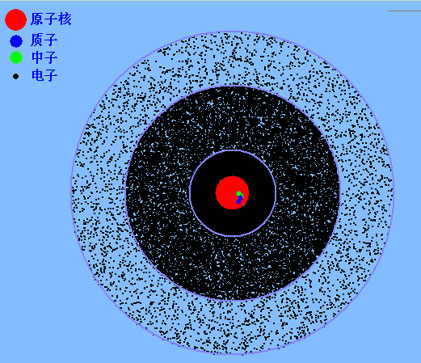(单词翻译:单击)
Physically he was big and booming, with a voice that made the timid shrink. Once when told that Rutherford was about to make a radio broadcast across the Atlantic, a colleague drily asked: "Why use radio?" He also had a huge amount of good-natured confidence. When someone remarked to him that he seemed always to be at the crest of a wave, he responded, "Well, after all, I made the wave, didn't I?" C. P. Snow recalled how once in a Cambridge tailor's he overheard Rutherford remark: "Every day I grow in girth. And in mentality."
就身体而言,他块儿很大,体格壮实,说话声音能把胆小的人吓一大跳。有一次,一位同事获悉卢瑟福就要向大西洋彼岸发表广播演说,便冷冷地问:“干吗要用广播?”他还非常自信,心态不错。当有人对他说,他好像总是生活在浪尖上,他回答说:“哎呀,这个浪头毕竟是我制造的,难道不是吗?”C.P.斯诺回忆说,有一次他在剑桥的一家裁缝店里偷听到卢瑟福在说:“我的腰围日渐变粗,同时,知识日渐增加。”
But both girth and fame were far ahead of him in 1895 when he fetched up at the Cavendish. 1 It was a singularly eventful period in science. In the year of his arrival in Cambridge, Wilhelm Roentgen discovered X rays at the University of Würzburg in Germany, and the next year Henri Becquerel discovered radioactivity. And the Cavendish itself was about to embark on a long period of greatness. In 1897, J. J. Thomson and colleagues would discover the electron there, in 1911 C. T. R. Wilson would produce the first particle detector there (as we shall see), and in 1932 James Chadwick would discover the neutron there. Further still in the future, James Watson and Francis Crick would discover the structure of DNA at the Cavendish in 1953.
但是,1895年他来到了卡文迪许实验室。在遥远的将来,他的腰围会变得更粗,名声会变得更响。卢瑟福抵达剑桥大学的那一年,威廉·伦琴在德国的维尔茨堡大学发现了X射线;次年,亨利·贝克勒尔发现了放射现象。卡文迪许实验室本身就要踏上一条漫长的辉煌之路。1897年,J.J.汤普森和他的同事将在那里发现电子;1911年,C.T.R.威尔逊将在那里制造出第一台粒子探测器(我们将会谈到);1932年,詹姆斯·查德威克将在那里发现中子。在更远的将来,1953年,詹姆斯·沃森和弗朗西斯·克里克将在卡文迪许实验室发现DNA结构。


